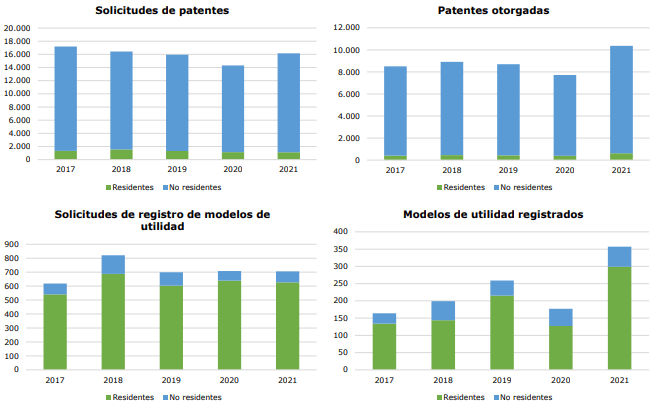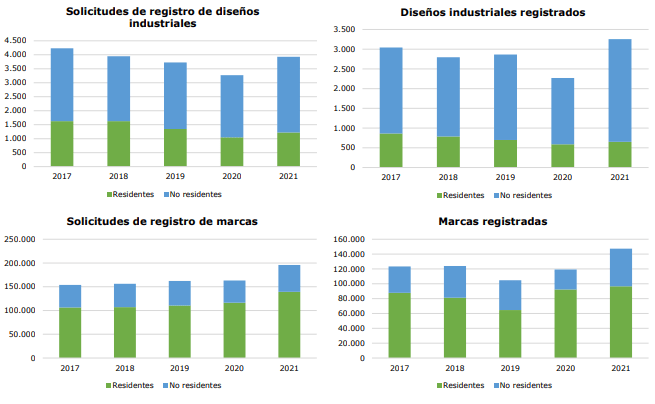Intellectual property rights (IPR) in Mexico are regulated by the Federal Law for the Protection of Industrial Property (LFPPI), the Federal Copyright Law (LFDA) and the Federal Plant Varieties Law (LFVV).
The LFPPI is a new law of 2020, which repeals the Industrial Property Law (LPI) of 1991.
Mexico is a party to 18 treaties of the World Intellectual Property Organization (WIPO).
Datos de propiedad industrial, 2017-2021

In 2020, the Hague Agreement (international registration of industrial designs) entered into force for Mexico.
Mexico is also a party to the 1978 International Union for the Protection of New Varieties of Plants (UPOV) Convention.
Industrial Property
In 2018, the Industrial Property Law (IPL, enacted in 1991) was revised to, among other things, introduce the regime for the protection of geographical indications; reduce the term (from 6 to 2 months) to file an opposition to a patent application; extend the maximum term (from 15 to 25 years) for the protection of industrial designs; and allow the registration of non-traditional trademarks and certification marks.
In 2020, the LFPPI was enacted, repealing the LPI. The LFPPI entered into force on November 5, 2020, with the exception of some provisions that entered into force one year later (November 2021).
The LFPPI was adopted to comply with the commitments acquired within the framework of new regional trade agreements, and to strengthen the protection of industrial property.
Foreign trade
The LFPPI incorporates, among other things, new requirements, terms of protection and exceptions.
According to the Mexican Institute of Industrial Property (IMPI) and the EU Intellectual Property Office (EUIPO), during the period 2010-2019, in Mexico a significant portion of GDP (47.8%), employment (33.6%) and foreign trade (74.7% of the value of exports and 72.9% of the value of imports) was generated by economic activities that make intensive use of intellectual property rights.
The agencies responsible for IPRs continue to be IMPI, the National Copyright Institute (INDAUTOR) and the National Seed Inspection and Certification Service (SNICS) of SADER.
Between 2017 and 2021, as during the previous examination period (2013-2017), almost all patents were filed by non-residents, while Mexicans chose to protect their inventions by registering utility models.
According to IMPI, the low number of patents applied for by Mexicans is due to several factors, mainly the lack of investment in R&D.
Between 2017 and 2021 the highest number of patents was granted for articles of use and consumption (42%), miscellaneous industrial techniques (22%) and chemistry and metallurgy (14 percent).
![]()

